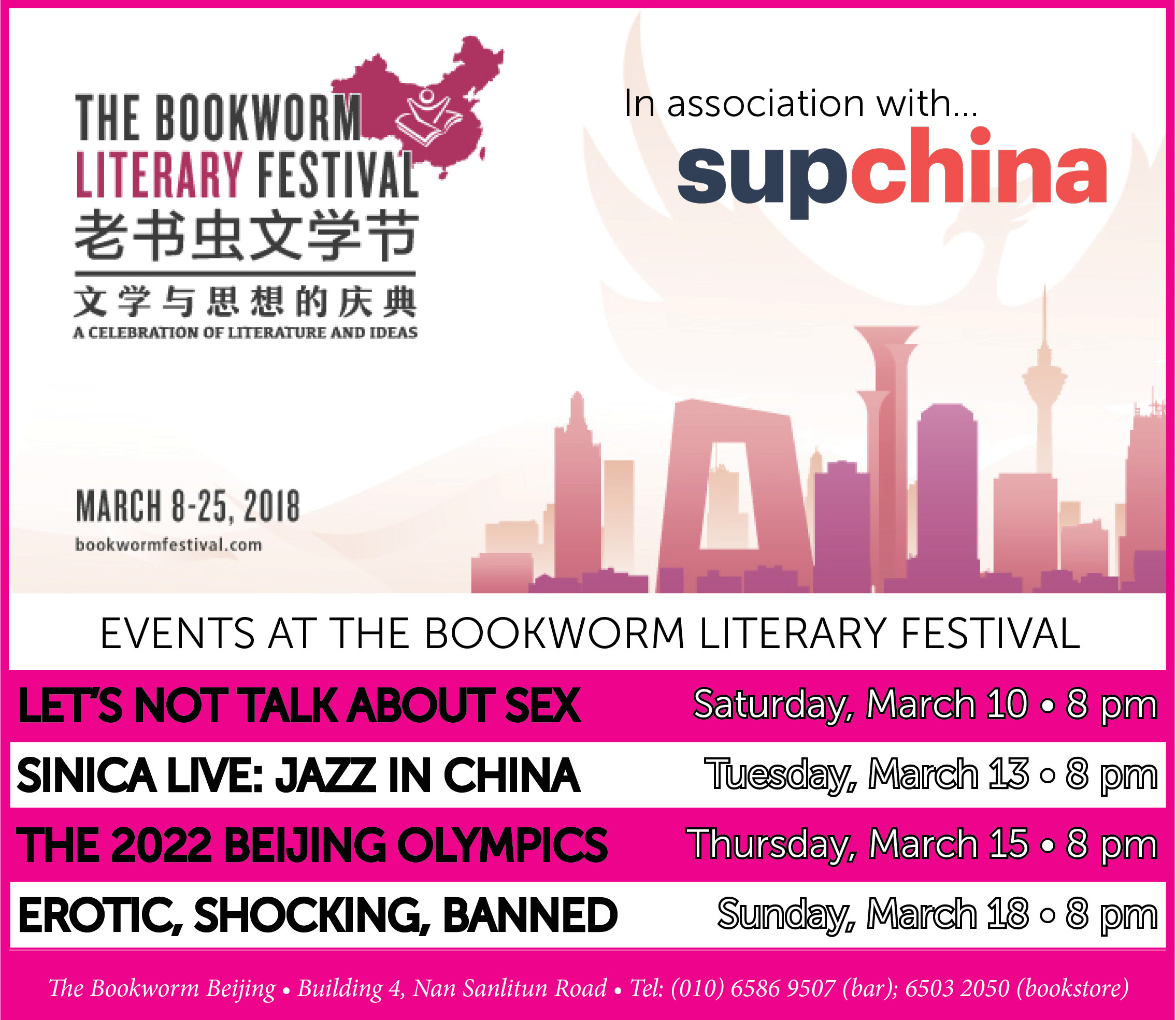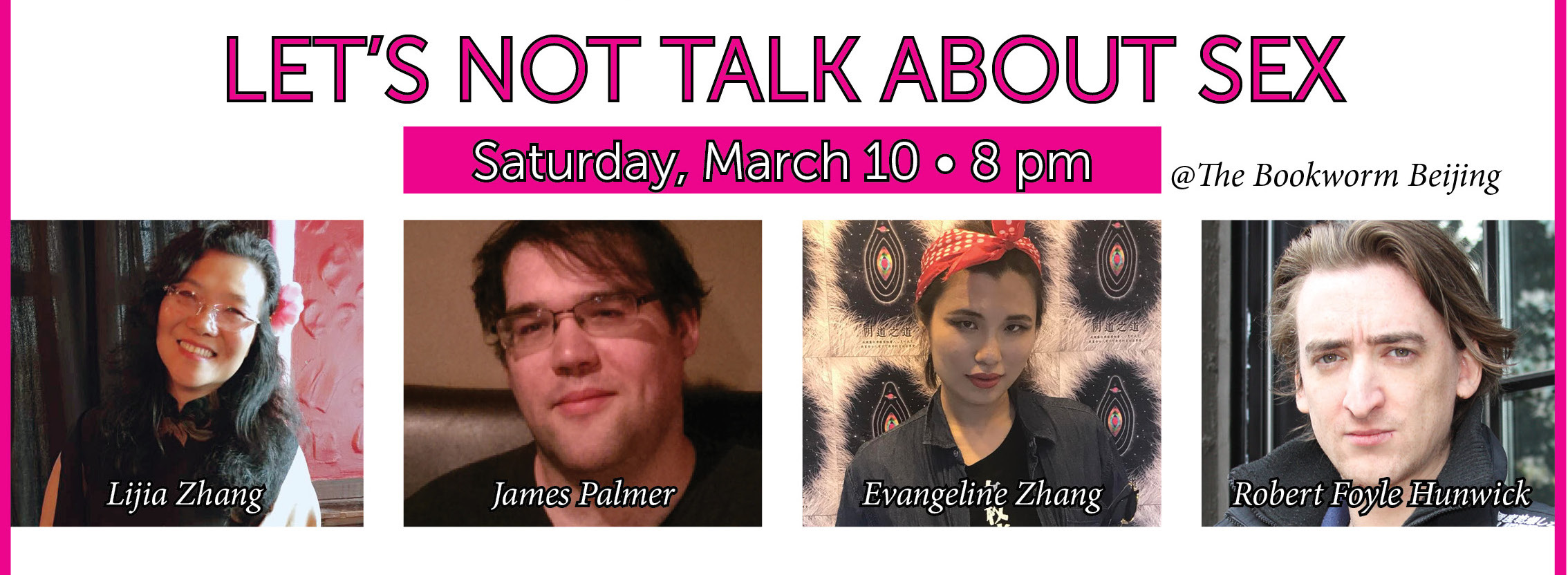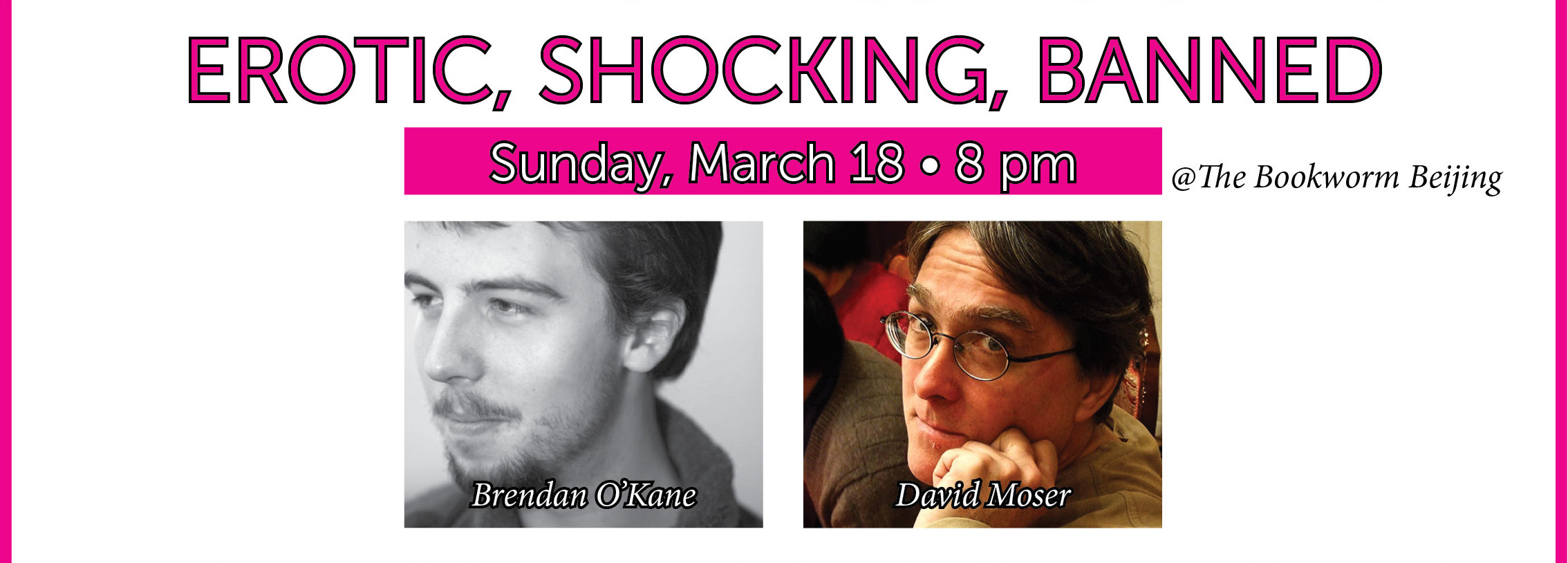The international Bookworm Literary Festival returns to Beijing

After a one-year hiatus, the Bookworm Literary Festival (BLF) is returning to Beijing for its 11th edition, from March 8 to 25, and we couldn’t be happier. All the popular events are back, including the Committing Journalism panel discussion, slam poetry, a Women’s Day panel, several talks on North Korea, and much more.
BLF is an independent, privately funded literary festival headquartered out of a bookstore in the heart of Beijing (called The Bookworm), which is also where the majority of the events will take place. Check out the absolutely packed event schedule here, which includes book talks, poetry readings, bilingual discussions, children’s events, and workshops (here’s a downloadable booklet). For our money, this is the best independent literary festival in Asia, if not the world. (Disclosure: The China Project editor Anthony Tao, who put together the The China Project-branded events for this year’s festival, coordinated the 9th and 10th editions of BLF. Still, we can objectively say this event occupies a vital place — and now more essential than ever — in the Beijing cultural scene.)
The China Project is proud to be a cultural sponsor of BLF this year, and as such we’re coordinating four events over the course of the festival. Tickets for all of these are available now, both online and at The Bookworm. They are:
Despite its massive population and ubiquitous “hair salons,” sex remains a largely taboo subject in China. Even writing about it can prove sensitive for some, with women, in particular, risking backlash from prudish readers and conservative authorities simply for discussing their sex lives. In this lively panel, we examine why and how writers write about sex, and discuss issues surrounding sexuality in China, from harassment to homosexuality, polyamory to prostitution. Moderated by Robert Foyle Hunwick, author of the forthcoming book Red Sin Rising: Vice and Crime in the New China, with novelist Zhang Lijia, rapper-activist Evangeline Zhang, and author James Palmer.
The Sinica Podcast returns to the city where it all began. In this live recording we will take a deep dive into jazz, which came to China in the 1920s as part of Shanghai’s vibrant international nightlife but disappeared in the fog of war and revolution in the following decades, returning with the wave of foreign cultural imports brought by Deng Xiaoping’s Reform and Opening Up. Join host Anthony Tao (Kaiser and Jeremy send their regards) as he talks to Jess Meider — one of China’s best jazz vocalists, having spent 20 years gracing stages all over the country — and David Moser, an academic and author who has played jazz piano in numerous groups in Beijing over the past 25 years. We’ll explore topics such as the early jazz venues, the participation of rock stars such as Cui Jian, the rise of astounding Chinese jazz prodigies, and the search for a “jazz with Chinese characteristics.”
With the 2018 Winter Olympics over, the winter sports world now turns its focus to Beijing ahead of 2022. How does China plan to get 30 million people involved in winter sports, let alone the 300 million number that’s often circulated? More broadly, how do winter sports fit into China’s push to make its sports industry the biggest in the world, and what are the main obstacles it faces? Join a stellar lineup of sports industry experts — Nikki Wang, who leads Deloitte’s sports business in China; Shirley Hon, who is Director of International Affairs, Kunlun Red Star; and moderator Mark Dreyer, who writes the China Sports Column for The China Project — as they discuss these questions and more. UPDATE, 3/9: Nikki Wang can no longer make the panel; we’ve added Justin Downes, board member on Canada’s national freestyle ski program, and Li Shuangfu, co-founder of the media platform Lanxiong Sports and the first Chinese NBA beat writer to visit the White House.
The novel Jin Ping Mei (金瓶梅, translated as The Plum in the Golden Vase or The Golden Lotus) is best known as a work of pornography, and has been officially banned in China for most of its history. No less a luminary than Lu Xun praised it as a scathing work of social commentary; its early readers ranked it among the “Four Masterworks” of Ming fiction, and the 17th century critic Zhang Zhupo lamented that the book’s reputation for obscenity came from readers who paid attention only to the obscene parts. Brendan O’Kane will discuss the world in which Jin Ping Mei was written, its literary aftershocks, and what the novel’s English translator David Roy has called its “uncompromising moral vision.” Moderated by David Moser, Associate Dean of Peking University’s Yenching Academy.
And finally, in what’s become somewhat of a tradition, Anthony Tao is hosting a quiz show — The Bookworm Literary Festival Quiz Show — to conclude the festival on Sunday, March 25 at 8 pm. Entry is free for that one, followed by a party.
We hope to see a lot of you there. Once again, go check out the full event schedule.










